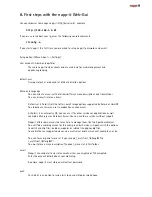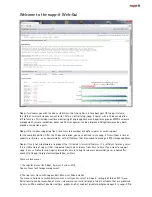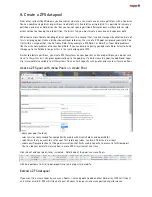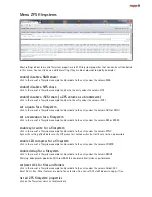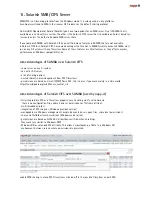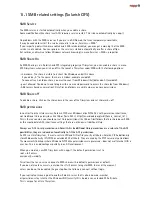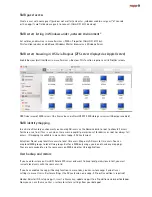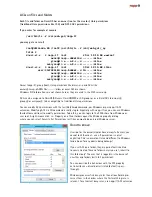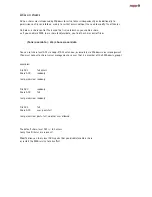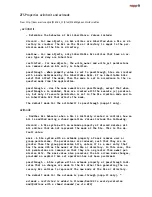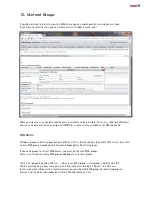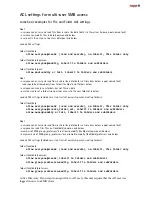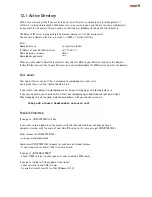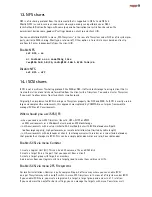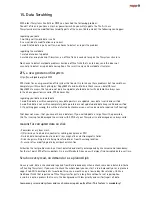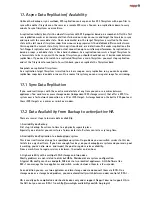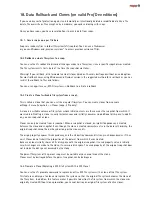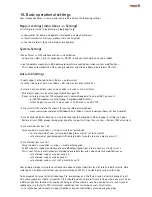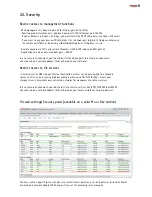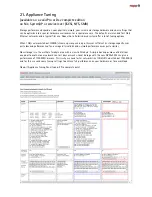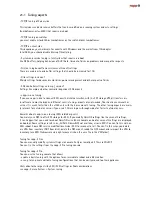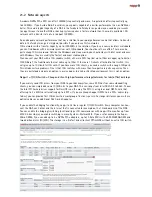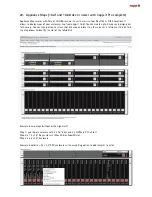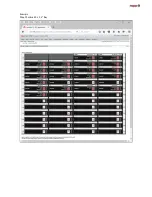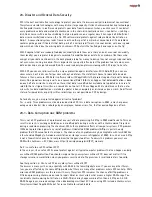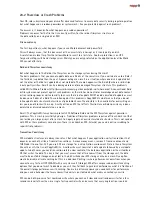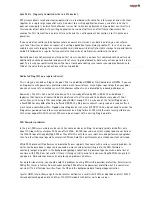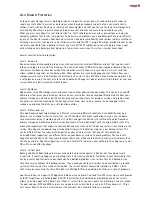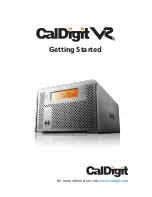
13. NFS shares
NFS is a filesharing protocol from the Unix world that is supported in NFS v3 and NFS v4.
Mostly NFS3 is used in secure environments where you mainly need performance as NFS3
lacks Authenthification (to login with name/pw) and Authorisation (no restrictions based on file
permissions) beside some „good will“ settings based on client ip and client UID.
You can enable/disable NFS in menu „ZFS filesystems“ in the row of a filesystem under NFS as a filesystem pro-
perty, similar to SMB sharing. Mostly you set on or off. Other option is to restrict access based on client ip
or allow full acces independently from the client UID.
Enable NFS
set NFS = on
or instead on on something like
[email protected]/24,[email protected]/24 tank/vm
Disable NFS
set NFS = off
14. iSCSI shares
iSCSI is not a multiuser filesharing protocoll like SMB or NFS. It offers blockstorage to a single client that is
treated there like a local disk and formatted from the client with a filesystem. You need a cluster filesystem
if you want to allow access from two clients simultaniously.
Originally, Sun implemented iSCSI sharing as a filesystem property like NFS and SMB. As iSCSI is mostly used in
large and complex HA environments, this approach was replaced by COMSTAR, a enterprise framework to
manage iSCSI and FC environments.
When should you use iSCSI/ FC
- when you need a non-ZFS filesystem like ext4, HFS+, NTFS or VMFS
ex ESXi environments or a Windows Server based on ZFS blockstorage
- in HA environments with a setup similar to SAS multipath but with iSCSI datanode multipath
to allow large capacity, high performance or remote installations (not limited by cable length)
- in HA environments with dataheads or clients (ex storageserver with services or a server) and datanodes
that provide their storage via iSCSI. This can be a simple datanode mirror or a raid-Z over datanodes.
Enable iSCSI via menu Comstar
1. create a Logical Unit (LU). This can be a ZFS volume, a file or a RAW disk
2. create a target (this is the part that you connect from a client)
3. create a target group with targets as members
4. add a view from your logical units to a target group to make them visible as a LUN.
Enable iSCSI via menu ZFS Filesystems
For smaller installations, Comstar is quite complex. Napp-it offers a way where you can enable iSCSI
on a per filesystem way with a on/off switch in menu ZFS filesystems in the row of a filesystem under iSCSI.
If you enable iSCSI here, you create a logical unit, a target, a target group and a view in a 1:1 relation.
If you need more than on/off or basic settings, you can manage the targets with menu Comstar as well.
Summary of Contents for ZFS Storage
Page 8: ...3 1 ZFS Configurations...

